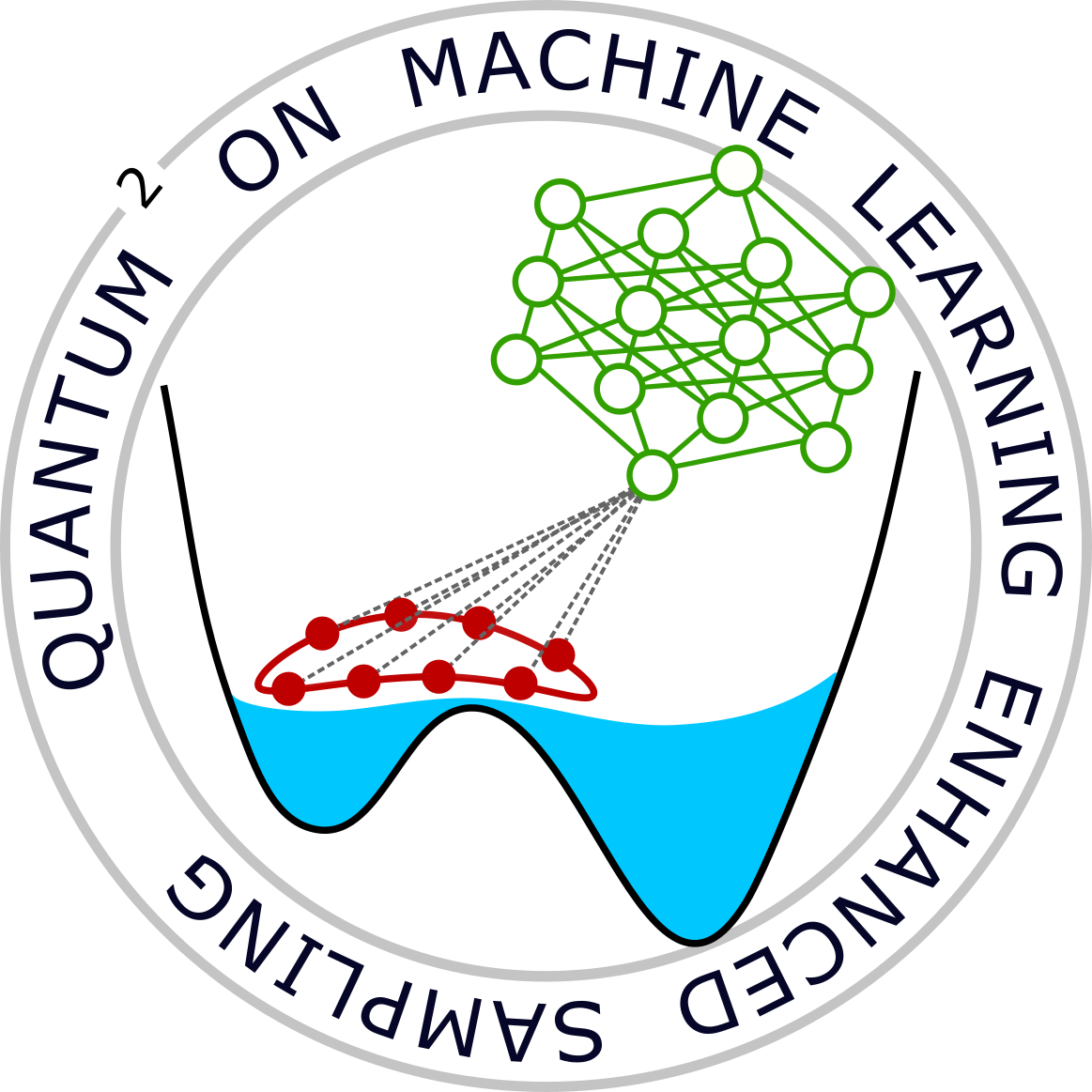Quantum2 on machine learning enhanced sampling
Location: CECAM-HQ-EPFL, Lausanne, Switzerland & online (hybrid format)
Organisers
Important: Applications for the workshop are now closed.

Enhanced sampling methods (ES) and machine learning potentials (MLPs) have enabled classical molecular dynamics (MD) simulations to characterize molecular systems in a reasonable computational time: ES allows to explore broader portions of the configuration space much faster than conventional MD [1], while MLPs can reach ab initio accuracy at the cost of a force field [2], making possible, for instance, to include solvent effects in chemical reactions [3]. However, the accuracy of classical MD is limited in cases where nuclear quantum effects (NQEs) are important, for example, when computing equilibrium properties of hydrogen-bonded systems like water[4] or chemical transformations where proton transfers are at play, which is the case for many biological systems such as the DNA [5,6].
Many of the methods used to include NQEs are based on the path integral approach [7-10] and need the introduction of many replicas of the system, increasing the computational cost. For this reason, these methods would benefit from the introduction of MLPs along with ES, which can achieve ab initio accuracy for all the atoms while keeping the computational cost low. ES and MLPs are independent of each other, hence easily compatible. In the case of methods that treat NQEs, the introduction of replicas has an influence on how ES and MLPs should be used. In fact, during the training of the MLPs, it must be taken into account that the distribution sampled by NQEs is different from the classical one. Still, it is not clear how to do it, or if it would be possible to train on entire ring polymers, rather than just replicas of the system. Another question is how solvent effects brought by MLPs couple with a system treated at the quantum level.
In this workshop, we will discuss recent developments and applications on enhanced sampling and nuclear quantum effects and how the use of machine learning potentials can be a practical bridge between the two aspects. This will be made possible through a variety of talks, given by invited but also contributed experts coming from different communities, with the main aim being to raise discussions and find solutions to the question of including nuclear quantum effects in the study of chemical reactions. Such advances would improve accuracy in predicting both kinetic and thermodynamic properties. Moreover, a big part of this workshop will be dedicated to discussions, establishing a common language and sketching ideas for future works in the three communities.
References
Matteo Peria (IMPMC - Sorbonne Université) - Organiser
Riccardo Spezia (Sorbonne Université & CNRS) - Organiser
Miha Srdinšek (Sorbonne Université - ISCD&IMPMC, École normale supérieure - P.A.S.T.E.U.R.) - Organiser
Germany
Karen Palacio-Rodriguez (Max Planck Institute of Biophysics) - Organiser
Italy
Timothée Devergne (Italian Institute of Technology) - Organiser
Switzerland
Federica Angiolari (CECAM- EPFL) - Organiser

 About
About
